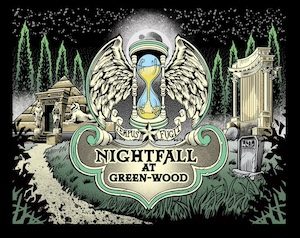Half a century ago, the Supreme Court settled the matter of when a court can stop a newspaper from publishing. In 1971, the Nixon administration attempted to block The Times and The Washington Post from publishing classified Defense Department documents detailing the history of the Vietnam War — the so-called Pentagon Papers. Faced with an asserted threat to the nation’s security, the Supreme Court sided with the newspapers. “Without an informed and free press, there cannot be an enlightened people,” Justice Potter Stewart wrote in a concurring opinion.
That sentiment reflects one of the oldest and most enduring principles in our legal system: The government may not tell the press what it can and cannot publish. This principle long predates the Constitution, but so there would be no mistake, the nation’s founders included a safeguard in the Bill of Rights anyway. The First Amendment says, “Congress shall make no law … abridging the freedom of speech, or of the press.”
This is why virtually every official attempt to bar speech or news reporting in advance, known as a prior restraint, gets struck down. “Any system of prior restraints of expression comes to this court bearing a heavy presumption against its constitutional validity,” the Supreme Court said in a 1963 case. Such restraints are “the very prototype of the greatest threat to First Amendment values,” Justice Antonin Scalia wrote a generation later.
Half a century ago, the Supreme Court settled the matter of when a court can stop a newspaper from publishing. In 1971, the Nixon administration attempted to block The Times and The Washington Post from publishing classified Defense Department documents detailing the history of the Vietnam War — the so-called Pentagon Papers. Faced with an asserted threat to the nation’s security, the Supreme Court sided with the newspapers. “Without an informed and free press, there cannot be an enlightened people,” Justice Potter Stewart wrote in a concurring opinion.
That sentiment reflects one of the oldest and most enduring principles in our legal system: The government may not tell the press what it can and cannot publish. This principle long predates the Constitution, but so there would be no mistake, the nation’s founders included a safeguard in the Bill of Rights anyway. The First Amendment says, “Congress shall make no law … abridging the freedom of speech, or of the press.”
This is why virtually every official attempt to bar speech or news reporting in advance, known as a prior restraint, gets struck down. “Any system of prior restraints of expression comes to this court bearing a heavy presumption against its constitutional validity,” the Supreme Court said in a 1963 case. Such restraints are “the very prototype of the greatest threat to First Amendment values,” Justice Antonin Scalia wrote a generation later.
Half a century ago, the Supreme Court settled the matter of when a court can stop a newspaper from publishing. In 1971, the Nixon administration attempted to block The Times and The Washington Post from publishing classified Defense Department documents detailing the history of the Vietnam War — the so-called Pentagon Papers. Faced with an asserted threat to the nation’s security, the Supreme Court sided with the newspapers. “Without an informed and free press, there cannot be an enlightened people,” Justice Potter Stewart wrote in a concurring opinion.
That sentiment reflects one of the oldest and most enduring principles in our legal system: The government may not tell the press what it can and cannot publish. This principle long predates the Constitution, but so there would be no mistake, the nation’s founders included a safeguard in the Bill of Rights anyway. The First Amendment says, “Congress shall make no law … abridging the freedom of speech, or of the press.”
This is why virtually every official attempt to bar speech or news reporting in advance, known as a prior restraint, gets struck down. “Any system of prior restraints of expression comes to this court bearing a heavy presumption against its constitutional validity,” the Supreme Court said in a 1963 case. Such restraints are “the very prototype of the greatest threat to First Amendment values,” Justice Antonin Scalia wrote a generation later.
Half a century ago, the Supreme Court settled the matter of when a court can stop a newspaper from publishing. In 1971, the Nixon administration attempted to block The Times and The Washington Post from publishing classified Defense Department documents detailing the history of the Vietnam War — the so-called Pentagon Papers. Faced with an asserted threat to the nation’s security, the Supreme Court sided with the newspapers. “Without an informed and free press, there cannot be an enlightened people,” Justice Potter Stewart wrote in a concurring opinion.
That sentiment reflects one of the oldest and most enduring principles in our legal system: The government may not tell the press what it can and cannot publish. This principle long predates the Constitution, but so there would be no mistake, the nation’s founders included a safeguard in the Bill of Rights anyway. The First Amendment says, “Congress shall make no law … abridging the freedom of speech, or of the press.”
This is why virtually every official attempt to bar speech or news reporting in advance, known as a prior restraint, gets struck down. “Any system of prior restraints of expression comes to this court bearing a heavy presumption against its constitutional validity,” the Supreme Court said in a 1963 case. Such restraints are “the very prototype of the greatest threat to First Amendment values,” Justice Antonin Scalia wrote a generation later.
